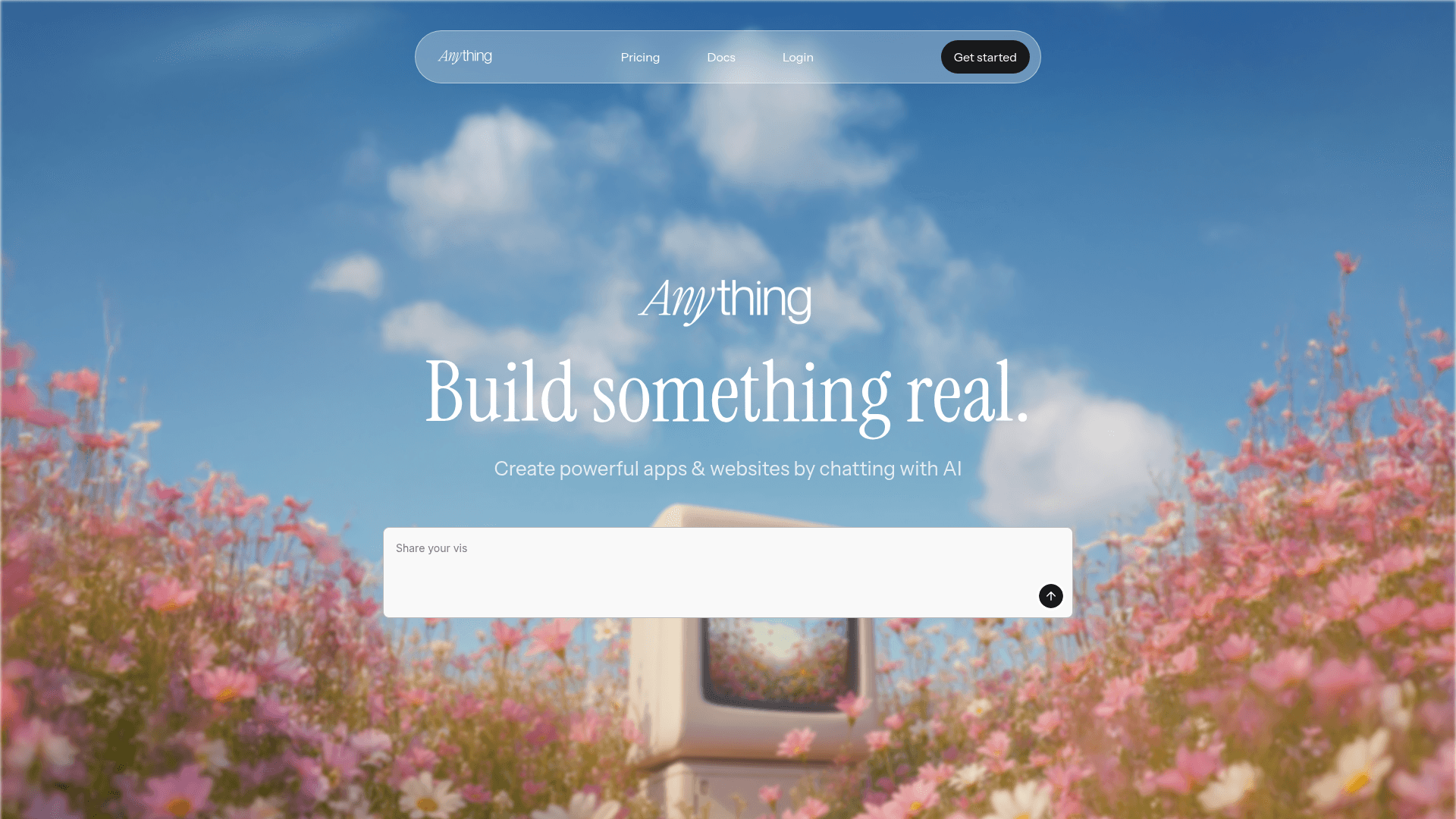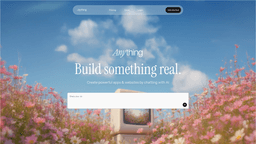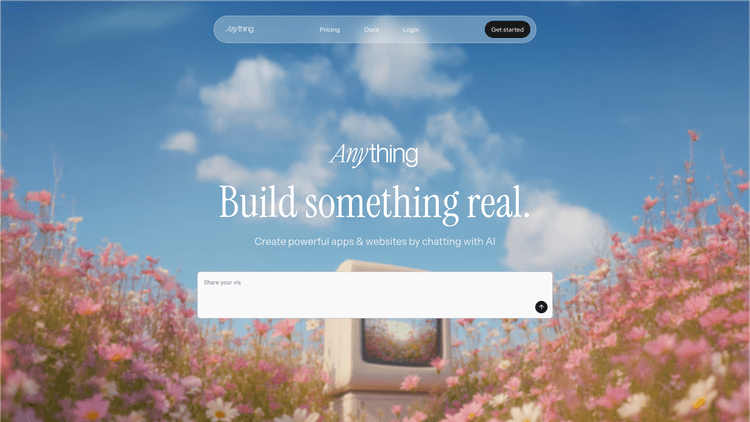



Anything
What is Anything
Anything is a revolutionary AI app builder that transforms natural language descriptions into fully functional applications. Think of it as having a super-smart developer friend who never sleeps and can turn your wildest app ideas into reality within minutes. What struck me immediately was how this AI app builder doesn't just create static mockups – it generates actual, working applications that you can interact with, test, and iterate on.
The platform leverages advanced language models to understand your app requirements from simple English descriptions. I remember typing something like "create a habit tracker with mood logging" and watching Anything interpret, design, and build a functional app that was surprisingly close to what I had envisioned. It's like having a genie for app development! 🧞♂️
What makes Anything particularly fascinating is its approach to democratizing app development. You don't need to understand databases, APIs, or user interface frameworks – you just need to articulate what you want. The AI app builder handles all the technical heavy lifting while keeping you in creative control.
Core AI Technologies Behind Anything
Anything utilizes large language models (LLMs) that have been specifically trained to understand app development contexts. When I dug deeper into how this AI app builder works, I discovered it's not just using generic AI – it's been fine-tuned to recognize patterns in app architecture, user experience design, and functional requirements.
The platform employs what I like to call "contextual code generation." Unlike traditional no-code tools that rely on pre-built templates, Anything dynamically generates code based on your specific requirements. It's analyzing your input, understanding the relationships between different app components, and then synthesizing everything into a coherent application structure.
One of the coolest aspects I've noticed is how Anything handles user interface generation. The AI doesn't just slap together random UI elements – it considers usability principles, modern design trends, and the specific functionality you're requesting. I've seen it automatically implement responsive design, intuitive navigation flows, and even accessibility features without being explicitly asked.
The natural language processing capabilities are where Anything really shines. It can parse complex, multi-layered requests and break them down into actionable development tasks. I tested this by giving it intentionally vague descriptions, and it consistently asked clarifying questions or made intelligent assumptions that aligned with best practices.
What's particularly impressive is how this AI app builder learns from iterations. As you refine your app through conversation, Anything remembers the context and builds upon previous interactions, creating a truly collaborative development experience.
Market Applications and User Experience
From my research and community interactions, I've found that Anything attracts an incredibly diverse user base. Entrepreneurs are using this AI app builder to rapidly prototype their startup ideas – I've seen founders go from concept to MVP in a matter of hours rather than months. Small business owners are creating custom tools for inventory management, customer tracking, and workflow automation without hiring expensive developers.
But here's what surprised me most: even experienced developers are embracing Anything! They're using it for rapid prototyping, exploring new ideas quickly, and handling smaller projects that would typically require significant time investment. It's like having a development assistant that never gets tired and always delivers consistent results.
Educators have been particularly creative with this AI app builder. I've seen teachers create custom learning applications, interactive quizzes, and student progress trackers tailored to their specific classroom needs. The speed at which they can iterate and customize these tools is genuinely impressive.
What I love about the market positioning is that Anything isn't trying to replace professional developers for complex enterprise applications. Instead, it's carving out a sweet spot for rapid prototyping, small to medium-scale applications, and empowering non-technical users to bring their ideas to life.
The feedback from the community has been overwhelmingly positive, with users consistently praising the intuitive approach and surprisingly robust output quality. However, like any tool, it has its learning curve and limitations, which brings us to some common questions.
FAQs About Anything
Q: Do I need coding experience to use Anything effectively?
A: Absolutely not! That's the whole point. I've seen complete beginners create functional apps on their first try. The AI handles all the technical complexity.
Q: How complex can the apps created with Anything actually be?
A: While it won't build the next Facebook, I've seen surprisingly sophisticated applications with multiple features, data management, and user authentication. It's perfect for most small to medium-scale projects.
Q: Can I export or modify the code that Anything generates?
A: The platform focuses on the conversational development experience rather than traditional code editing. You iterate and modify through dialogue with the AI.
Q: Is Anything suitable for commercial applications?
A: Many users are successfully deploying Anything-built apps for business purposes. The quality is definitely commercial-grade for appropriate use cases.
Q: How does Anything compare to traditional no-code platforms?
A: The conversational interface sets it apart completely. Instead of dragging and dropping components, you're literally describing what you want and watching it appear.
Future Development and Outlook
What excites me most is the potential for this AI app builder to unlock creativity in people who previously felt excluded from the tech world. I imagine teachers, artists, small business owners, and countless others finally being able to build the digital tools they've always envisioned but never had the technical means to create.
The implications for rapid prototyping and innovation cycles are staggering. Instead of weeks or months to test an app concept, we're talking about minutes or hours. This acceleration could fundamentally change how we approach problem-solving in the digital space.
However, I also see this evolution raising important questions about the role of traditional development skills and the value of deep technical expertise. Rather than replacement, I believe we're moving toward a world where AI amplifies human creativity and technical knowledge becomes more specialized and strategic.
Looking ahead, I expect to see Anything and similar platforms become increasingly sophisticated, handling more complex applications while maintaining their accessibility. The conversational interface will likely become the standard for human-AI collaboration in creative and technical fields.





No reviews yet. Be the first to review!